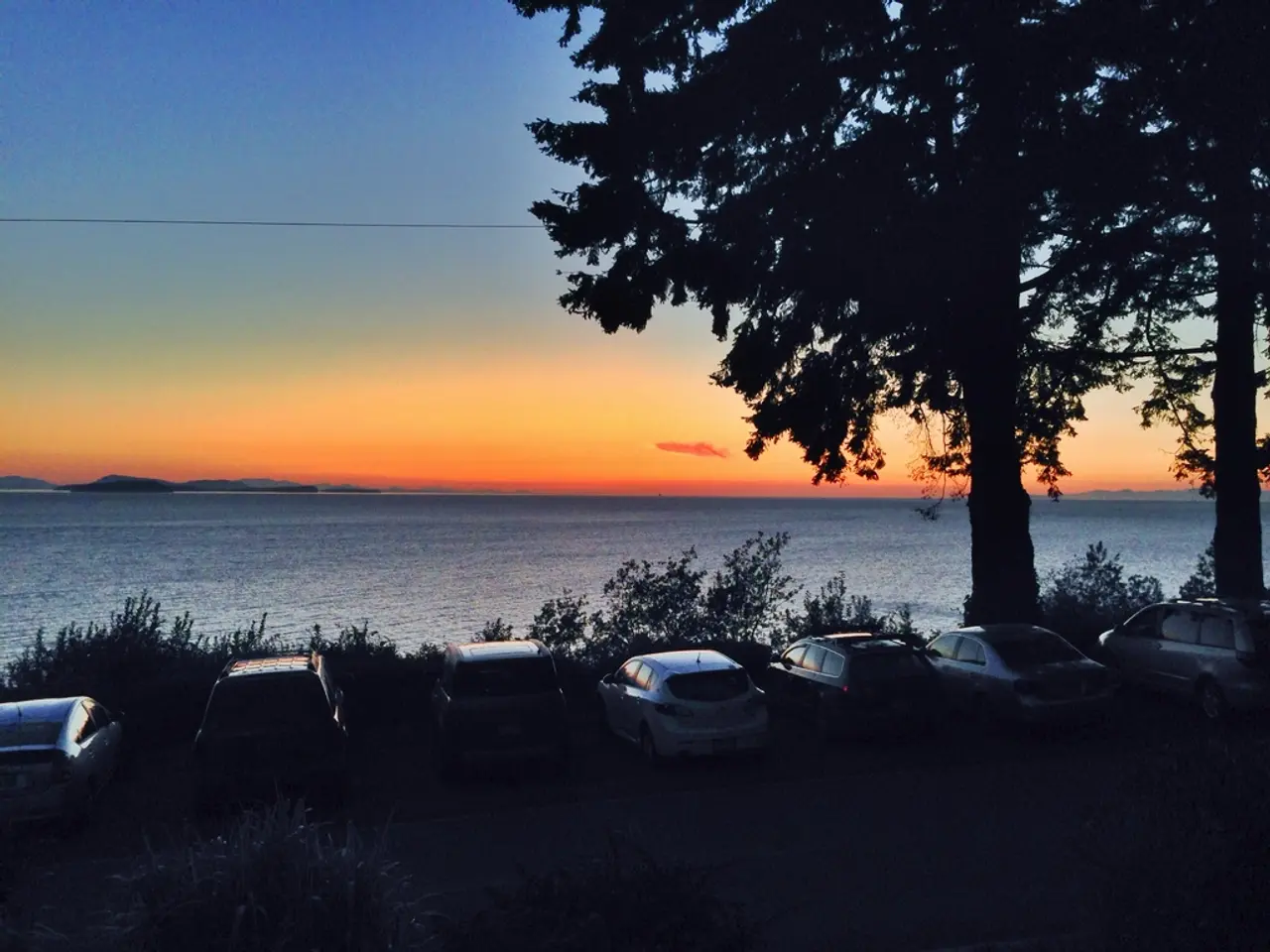Women in Indonesia maintain seaweed-based livelihoods amidst challenges posed by climate adversities
In the heart of Indonesia's marine biodiversity, the islands of Nusa Penida and Nusa Lembongan have faced a significant shift in their traditional seaweed farming practices due to the impact of climate change. For centuries, the women of these islands have cultivated seaweed, primarily Kappaphycus alvarezii (formerly Eucheuma cottonii), known locally as grandong or katoni, using methods that were guided by predictable seasonal patterns.
However, over the past decade, climate change has introduced more frequent and intense storms, as well as increased rainfall, which now seriously damage seaweed crops and disrupt the reliability of harvests. This unpredictability threatens a centuries-old livelihood and complicates the timing and methods of seaweed cultivation, which was normally stable and seasonal.
Nyoman Mitri, a local seaweed farmer, has observed an increase in a virus that is killing seaweed in recent years, particularly during heavier rains. This virus, along with the more frequent storms, is breaking the traditional seasonal patterns and affecting crop quality and yield.
In response to these challenges, seaweed farmers are collaborating with tourism operators and coral-conservation groups to adapt and preserve their practices. These efforts include integrating sustainable tourism to support the community economically while prioritizing environmental conservation. The aim is to make seaweed farming more resilient to climatic variations and the pressures of expanding tourism development on the islands.
Marine park zoning has reduced destructive activities in important coral reef habitats on Nusa Penida and Nusa Lembongan. Seaweed farmers have partnered with NGOs for island-wide conservation and coral reef restoration efforts. Biologist Andrew Taylor began a coral restoration project in 2018 targeting degraded reef zones in northern Nusa Penida.
Indonesia is one of the biggest seaweed producers in the world, exporting both raw and processed seaweed products. Despite the challenges posed by climate change, Indonesian women lead 40% of Indonesian seaweed start-ups, and seaweed production is growing in the region.
During the Covid-19 pandemic, many women returned to seaweed cultivation as tourism collapsed, providing for their families during a time of economic uncertainty. The seaweed farms on Nusa Penida and Nusa Lembongan have been a vital part of the communities for hundreds of years.
Some women on Nusa Lembongan charge tourists for photographs and explanations about their seaweed harvesting traditions. On Nusa Penida, ongoing construction is making it increasingly difficult for locals to access harvesting sites due to flooding and altered coastal infrastructure.
Despite these challenges, the resilience of the communities on Nusa Penida and Nusa Lembongan is evident. The case exemplifies how small island communities dependent on marine agriculture are vulnerable to climate shifts but are actively seeking innovative ways to sustain their traditions and livelihoods amid changing environmental conditions.
References: [1] No explicit quantitative data or scientific studies specific to Nusa Penida seaweed farming were found in the search results, but the qualitative accounts highlight clear climate-related challenges and community responses.
- Collaborative efforts are being made to adapt traditional seaweed farming in the face of climate change on Nusa Penida and Nusa Lembongan, involving tourism operators, coral-conservation groups, and seaweed farmers.
- Sustainable tourism is being integrated into seaweed cultivation practices on these islands, with the goal of supporting the community economically and prioritizing environmental conservation.
- Climate change has caused more frequent and intense storms, increased rainfall, and the proliferation of viruses affecting seaweed crops, disrupting the reliability of harvests and affecting crop quality and yield.
- Despite the challenges posed by climate change, Indonesian women are leading a significant portion of seaweed start-ups and seaweed production is growing in the region.
- During the Covid-19 pandemic, many women returned to seaweed cultivation as a source of income, supplementing their families' needs during a time of economic uncertainty.
- Some women in these communities capitalize on tourism by charging tourists for photographs and explanations about their seaweed harvesting traditions.
- Construction and altered coastal infrastructure are making it difficult for locals to access seaweed harvesting sites on Nusa Penida, compounding the challenges faced by these small island communities dependent on marine agriculture.




